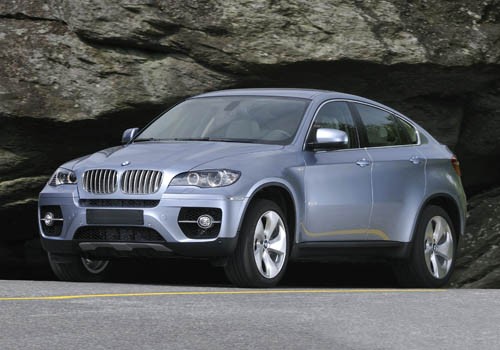E 'completed a few days in Monaco of Bavaria, the BMW Group Innovation Day 2011, an event organized by BMW and exercise to expose the latest technology and advanced materials used to develop new efficient and environmentally friendly solutions for use on this BMW and the foreseeable future. To achieve the objectives of a cleaner and more efficient mobility ever achieved with a progressive lowering of fuel consumption and associated emissions, the manufacturer Teutonic has long developed a strategy called "Efficient Dynamics" that is leading to a growing both in the economic point of view that the responsible management of resources.
In addition to responsibility for their products, application of environmentally friendly production processes and modern recycling processes, work for sustainable growth includes a development company with long-term prospects and a highly diversified social commitment. This is also why BMW has won for the sixth consecutive time premium Dow Jones Sustainability Index as the most sustainable car manufacturer in the world.
Among the innovations shown at the festival of Monaco stand out among others the new material made of carbon fiber reinforced plastic hybrid materials called CFRP at the same time ensuring greater resistance compared to steel and aluminum components they replace. With these new materials are made of many components such as seat frames, steering wheel, the shells of the doors, counter shafts and transmissions, to name a few.
Obviously, the Efficient Dynamics strategy is not limited to the components of the car, but also includes the use of new technologies to be applied to many mechanical parts and especially the engines. A striking example is the latest propulsion units that adopt the technology TwinPower Turbo, used on an increasing number of models of the House.
In 2011 they made their debut the new 2.0-liter petrol and 3.0 liter diesel engines, both equipped with the BMW Turbo TwinPower: the new BMW X1 xDrive28i, the 2.0-liter Twin Turbo petrol engine can accelerate from 0 to 100 km / h in just 6.1 seconds in the face of great consumption declared amounted to 7.9 l/100 km, or 16% less than the engine it replaces. 


In addition to responsibility for their products, application of environmentally friendly production processes and modern recycling processes, work for sustainable growth includes a development company with long-term prospects and a highly diversified social commitment. This is also why BMW has won for the sixth consecutive time premium Dow Jones Sustainability Index as the most sustainable car manufacturer in the world.
Among the innovations shown at the festival of Monaco stand out among others the new material made of carbon fiber reinforced plastic hybrid materials called CFRP at the same time ensuring greater resistance compared to steel and aluminum components they replace. With these new materials are made of many components such as seat frames, steering wheel, the shells of the doors, counter shafts and transmissions, to name a few.
Obviously, the Efficient Dynamics strategy is not limited to the components of the car, but also includes the use of new technologies to be applied to many mechanical parts and especially the engines. A striking example is the latest propulsion units that adopt the technology TwinPower Turbo, used on an increasing number of models of the House.
In 2011 they made their debut the new 2.0-liter petrol and 3.0 liter diesel engines, both equipped with the BMW Turbo TwinPower: the new BMW X1 xDrive28i, the 2.0-liter Twin Turbo petrol engine can accelerate from 0 to 100 km / h in just 6.1 seconds in the face of great consumption declared amounted to 7.9 l/100 km, or 16% less than the engine it replaces.



No comments:
Post a Comment